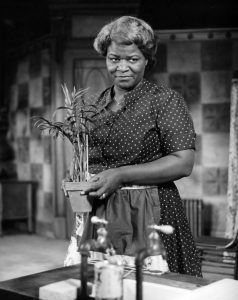 From Fr. Mark: After recently re-reading Lorraine Hansberry’s play, A Raisin in the Sun, I was touched (anew) by an encounter in Act III of the work. The character Walter loses money, which could have been used for a better life for his family, and he earns his sister Beneatha’s anger and disgust. Mama tries to heal the discord by reminding Beneatha to love her brother, to which Beneatha responds, “There is nothing left to love.” Mama then explains the true meaning of “mercy.” She says, “There is always something left to love. And if you ain’t learned that, you ain’t learned nothing. Have you cried for that boy today? I don’t mean for yourself and the family ’cause we lost the money. I mean for him; what he been through and what it done to him. Child, when do you think is the time to love somebody the most; when they done good and made things easy for everybody? Well then, you ain’t through learning — because that ain’t the time at all. It’s when he’s at his lowest and can’t believe in hisself ’cause the world done whipped him so. When you starts measuring somebody, measure him right, child, measure him right. Make sure you done taken into account what hills and valleys he come through before he got to wherever he is.”
From Fr. Mark: After recently re-reading Lorraine Hansberry’s play, A Raisin in the Sun, I was touched (anew) by an encounter in Act III of the work. The character Walter loses money, which could have been used for a better life for his family, and he earns his sister Beneatha’s anger and disgust. Mama tries to heal the discord by reminding Beneatha to love her brother, to which Beneatha responds, “There is nothing left to love.” Mama then explains the true meaning of “mercy.” She says, “There is always something left to love. And if you ain’t learned that, you ain’t learned nothing. Have you cried for that boy today? I don’t mean for yourself and the family ’cause we lost the money. I mean for him; what he been through and what it done to him. Child, when do you think is the time to love somebody the most; when they done good and made things easy for everybody? Well then, you ain’t through learning — because that ain’t the time at all. It’s when he’s at his lowest and can’t believe in hisself ’cause the world done whipped him so. When you starts measuring somebody, measure him right, child, measure him right. Make sure you done taken into account what hills and valleys he come through before he got to wherever he is.”
With all of the uncertainty surrounding us today, with our heightened concern about our health and the health of those we love, and with the on-going protests for justice (including here in the Rose City), it seems like we have all the more reason to honestly assess where our brothers and sisters are and where they have come from. How are they feeling vulnerable? What has happened along the way to make them cry out for justice here and now? How can we become more aware of what causes them pain and how can we reach out to help salve their wounds?
In Genesis 4, Adam and Eve have two sons, Cain (the older) and Abel. Cain grows jealous of his younger brother, so he invites Abel out to the fields, and then kills him. God comes and asks Cain, “Where is your brother Abel?” and Cain says, “I don’t know. Am I my brother’s keeper?” Cain, you see, was concerned only for himself, an attitude that is very much in vogue today. God’s answer to Cain, however, is that yes, indeed, he is his brother’s keeper. Is it any surprise that the Son of God, Jesus, tells us repeatedly in the Gospels, in this very same spirit, to look out for each other? For example, “Whatever you do unto the least of these, you do unto me.”
Let us dedicate ourselves to being courageous enough to become our “brother’s (and sister’s) keeper.” We can do that by going out of our way to be kind to others, to build them up, to compliment them about things worthy of our notice, to forgive them, to express in some way our solidarity with them and their present needs. There is neither a mandate nor a need to add to today’s divisiveness and violence, as Cain did. Let’s be sure to do the opposite. Let’s be peacemakers and let’s make sure we have taken into account what hills and valleys others have come through before they got to wherever they are.

